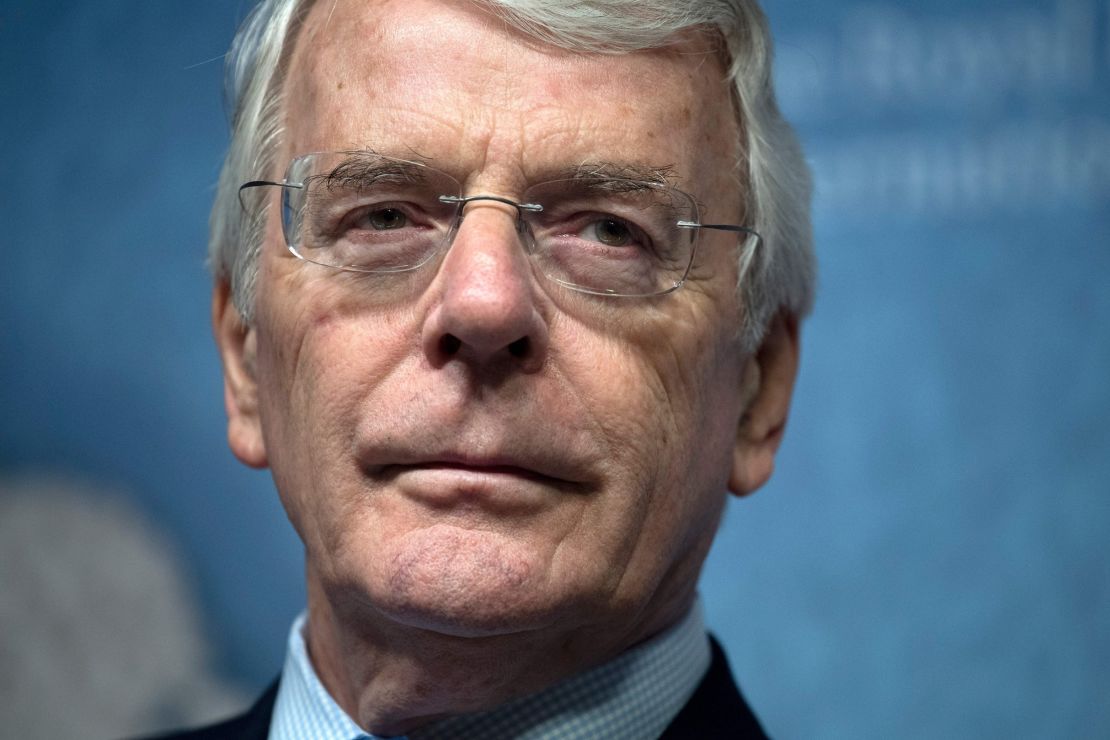One of British Prime Minister Theresa May’s predecessors has warned that her plan to stay in power after losing her parliamentary majority risks the “fragile” peace in Northern Ireland.
John Major said he had serious doubts about a proposed tie-up the Democratic Unionist Party (DUP), which is traditionally associated with the protestant side of the sectarian divide in Northern Ireland.
Major, who helped lay the foundations of the 1998 agreement that ended two decades of sectarian conflict in Northern Ireland when he was in government, said it would imperil the UK government’s impartial role in the peace process.
May’s Conservative Party needs the support of the DUP’s 10 MPs in order to retain power in the House of Commons, after losing her majority in last weeks “snap” UK election.
The Prime Minister held talks with Arlene Foster, leader of the DUP on Tuesday, with a view to agreeing a “confidence and supply” agreement, in which the smaller party would support the Conservatives on budgetary and confidence votes.
But Major, who was leader of the Conservative Party and Prime Minister between 1990 and 1997, said he was “wary” and “dubious” of any deal with the DUP at a time where talks are about to resume on the state of the devolved government in the province.
“A fundamental part of that peace process is that the UK government needs to be impartial between all the competing interests in Northern Ireland,” he told the BBC. “And the danger is that however much any government tries, they will not be seen to be impartial if they are locked into a parliamentary deal at Westminster with one of the Northern Ireland parties.”
“People regard the peace process, which was very hard earned over very many years by a lot of people, people shouldn’t regard it is a given. It isn’t certain, it is under stress. It is fragile.”
“Although I don’t expect it to suddenly collapse because there’s a broad consensus that wishes it to continue, I think we have to take care with it.”
Read: The 10 people who can make or break Brexit
Minority
May’s pursuit of the DUP has raised concerns in the Conservative Party. Ruth Davidson, leader of the Conservatives in Scotland, sought assurances that LGBT rights would be protected after any deal with the DUP, which opposes same-sex marriage.
But may appears to be motivated by her desire to guarantee a majority in Parliament for a Queen’s Speech – a key event in the parliamentary calendar in which the government lays out its policy agenda for the coming year. If the Conservatives lost a vote on the Queen’s Speech, May would face calls to stand aside,

Major’s warning comes amid ongoing political turmoil in Northern Ireland. Devolved government at Stormont, site of the Northern Ireland assembly, broke down in January and has yet to restart. Talks between the parties resumed Monday in a bid to end the political deadlock.
Downing Street has warned that direct rule from London could be imposed if no solution is found before ta June 29 deadline.
Brexit effect
One of the most pressing issues is the state of the border between Northern Ireland and the Republic of Ireland after Britain leaves the EU.
While the DUP backed Brexit, it has already stated that it opposes a hard border and wants to maintain the Common Travel Area which would allow the movement of goods and services to go unhindered.
The European Union has already said that it will make the border issue one of its top priorities, as has the British government.
Read: Theresa May – the Icarus of UK politics
Major says that any reintroduction of a hard border in Northern Ireland could prove harmful to long-term peace in the country.
“The last thing we want to see is one or other of the communities so aggrieved that the hard men, who are still there lurking in the corners of the communities decide to return to some form of violence,” he said.
“We really need to do everything we conceivably can to make sure that that doesn’t happen, and that does require an impartial UK government.”






